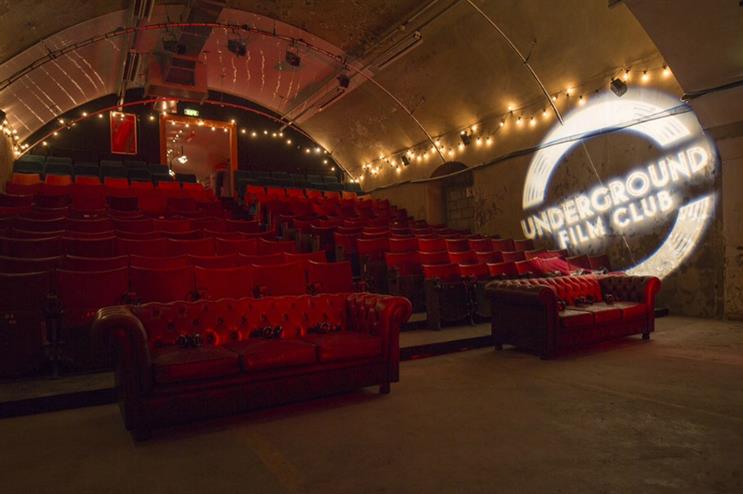
The company, which also encompasses the Underground Film Club, is hosting a screening of Suffragette at The Vaults in central London on Saturday (16 January). The tickets, which are now sold out, cost female cinema-goers 86% of the full ticket price of £15.
The act aims to draw attention to the fact that on average, women in the UK receive 86p for every £1 earned by their male counterparts.
Gerry Cottle Jnr, founder of Rooftop Film Club, said: "We hope that our event helps in some small way to highlight what is a serious issue, not only in the film industry but across the UK."
Remuneration based on merit
Dom Robertson, managing director at RPM, is in support of the event, and explains that merit rather than gender should determine an individual’s salary.
"Events such as Rooftop Film Club’s showing of Suffragette are a great way of ensuring that this issue remains front of mind, but action needs to be driven by employers," he says.
"It is astonishing that the pay gap still exists. Remuneration is based on merit. Pay bands need to be clearly communicated and publicised to ensure that everyone is aware of what their salary will be at every level whether they are male or female."
Stuart Knight, managing director at WhyNot, agrees that employees should be paid based on their skills and experience. "Clearly the gender pay gap is an important issue and is a remnant of historical nonsense. The event industry is biased towards men when it comes to pay like many others – I can’t think of any reason or justification for a gender bias.
"Gender is irrelevant and pay should be based on merit and ability. Diversity is vital to any progressive and contemporary business and as such, outdated attitudes towards pay have no place."
While he recognises that some changes have been made to bridge the gap between the genders, Knight feels that more needs to be done.
"I know that there are moves afoot to bring pay into line for , but this falls short of a more comprehensive approach to the issue and change of attitude.
"Despite some big changes in recent times the boardroom and salaries are male dominated – if the Rooftop Film Club initiative continues the debate, raises awareness and in its own way makes a positive contribution to the issue then well done to them. Will we see the same with concert and theatre tickets I wonder?"
Better pay transparency and negotiation
Nicky Milligan, managing director at MCM, poses that a new approach to pay transparency could help to alleviate the pay gap. "How do we go about finding out what our male colleagues are earning? We are all conditioned not to share salary information but perhaps it needs to be okay to talk about pay," she explains.
"If we all talked about it, women would strive to close the gap a lot faster and start to have discussions with their employers, who in turn will realise what an issue it is. At the moment it vastly goes unnoticed."
She adds: "Employers could implement pay transparency, this would let everyone know what their colleagues are earning and would make women aware if they were making more or less."
Milligan notes that women generally aren’t as confident at negotiating as men, which can affect their ability to secure a pay rise, promotion or preferred salary when it comes to a new role.
"Employers could eliminate pay negotiation - it seems odd to favour men just because they are better at negotiation, especially if this is not a criteria of the job they are being offered. It may be difficult to completely eliminate this when hiring highly experienced employees, but could work when hiring entry-level candidates.
"This will not solve all of the issues for women in the workplace - especially with childcare still a key issue that gives men an advantage for promotion - but for organisations wanting to be leaders in achieving gender parity in the workplace, it could be a great start," she adds.
Cultural fit above all else
Nick Morgan, chief executive at The Fair, explains that he looks for individuals who demonstrate values and behaviour in line with that of the agency.
"When recruiting, cultural fit is the most important factor to us. Each of our team members is integral to the success of our events regardless of their gender," he says.
"We encourage a mindset of meticulous attention to detail alongside a can-do ethos. We specialise in full production and health and safety management and our team is 50% women."
Morgan adds that The Fair has developed a framework to foster the development of all employees, irrespective of gender. "Our policies and our continuing professional development (CPD) programme ensure that the development of every team member is continually supported and encouraged. We intend to maintain the equal split we have as the agency grows."
More:
Tell us about your work experiences - take part in the anonymous .
Comment below to let us know what you think.
For more in-depth and print-only features, showcases and interviews with world-leading brands, don't miss the next issue of Event magazine by .

